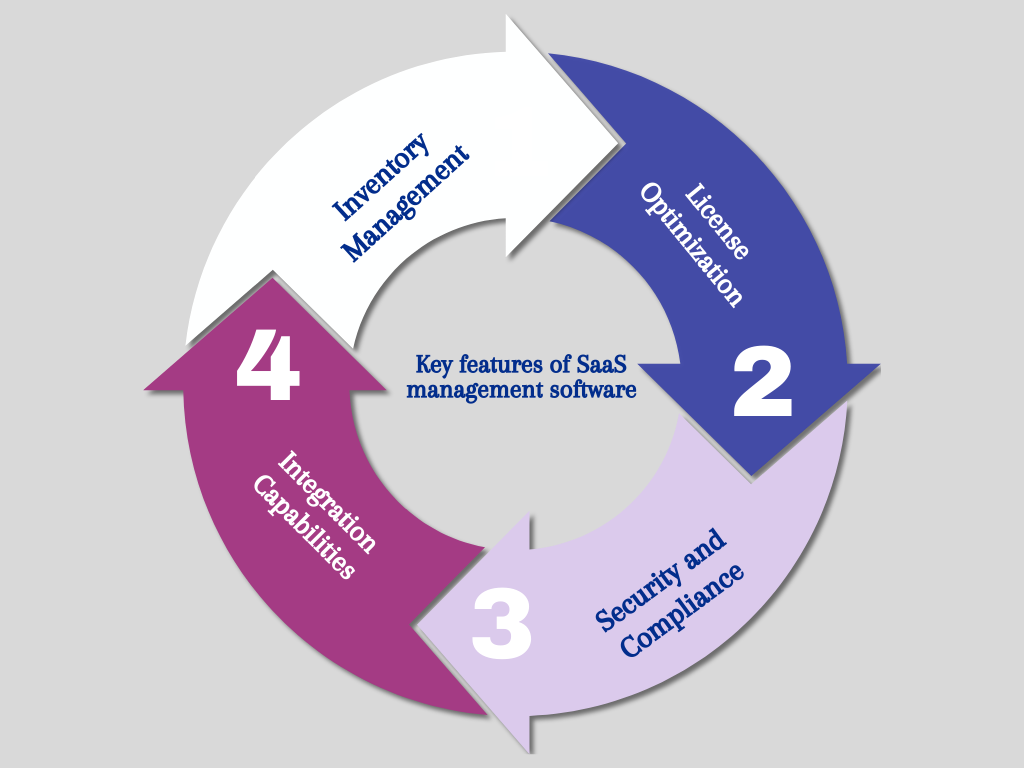In the digital age, businesses rely heavily on software to streamline operations, enhance productivity, and drive growth. With the rapid adoption of cloud-based services and subscription models, the management of Software as a Service (SaaS) applications has become increasingly complex. This is where SaaS management software comes into play.

Evolution of SaaS Management Software
Cloud Computing Revolution
The advent of cloud computing has transformed the way software is delivered and consumed. Traditional on-premises software is being replaced by cloud-based solutions, offering greater flexibility, scalability, and accessibility.
Rise of Subscription-Based Services
The shift towards subscription-based services has led to a proliferation of SaaS applications within organizations. While these applications offer numerous benefits, managing multiple subscriptions across different departments can be challenging.
Understanding SaaS Management Software
SaaS management software is designed to address these challenges by providing organizations with a centralized platform to oversee the entire lifecycle of their SaaS applications. From procurement and provisioning to monitoring and optimization, SaaS management software offers comprehensive visibility and control.
Certainly! Here are five key points illustrating the evolution of SaaS management software:
- Shift to Cloud-Based Solutions:
- Increased Complexity of Software Ecosystems
- Focus on Automation and Efficiency
- Integration with IT Infrastructure
- Enhanced Security and Compliance Features
SaaS management software has evolved alongside the broader shift towards cloud computing, enabling businesses to manage their software applications remotely via the internet.
As organizations adopt more SaaS applications, the need for centralized management tools has grown, leading to the development of more sophisticated SaaS management solutions.
Modern SaaS management software emphasizes automation and efficiency, leveraging technologies like AI and machine learning to streamline processes such as license management and compliance.
Today's SaaS management platforms offer seamless integration with existing IT infrastructure, allowing businesses to manage their entire software ecosystem from a single dashboard.
With data security becoming a top priority, SaaS management software has evolved to include robust security and compliance features, helping organizations mitigate risks and meet regulatory requirements.
Key features of SaaS management software include:

- Inventory Management
- License Optimization
- Security and Compliance
- Integration Capabilities
Tracking all subscribed applications and their usage.
Ensuring compliance and minimizing costs by optimizing license usage.
Implementing security protocols and ensuring regulatory compliance.
Seamlessly integrating with existing IT infrastructure and other management tools.
Benefits of SaaS Management Software
Cost Efficiency
By providing insights into SaaS usage and optimizing license allocation, SaaS management software helps organizations reduce costs and eliminate wastage.
Enhanced Security
With the increasing risk of cyber threats and data breaches, SaaS management software plays a crucial role in enforcing security policies and safeguarding sensitive information.
Scalability and Flexibility
As businesses scale and evolve, SaaS management software offers the flexibility to adapt to changing needs and support growth initiatives.
Challenges in SaaS Management
Despite its numerous benefits, SaaS management poses several challenges for organizations:
- Shadow IT
- License Management
- Compliance and Governance
The proliferation of unauthorized SaaS applications within organizations can lead to security risks and compliance issues.
Tracking and managing software licenses across different vendors and subscription models can be complex and time-consuming.
Ensuring compliance with industry regulations and internal policies requires robust governance and oversight.
Key Players in the SaaS Management Software Market
- SaasPe
- Blissfully
- Zylo
- Torii
- Flexera
Implementation and Best Practices
Successful implementation of SaaS management software requires careful planning and execution. Organizations should:
- Assess Organizational Needs
- Choose the Right Solution
- Integration and Adoption Strategies
Identify pain points and prioritize features based on business objectives.
Evaluate vendors based on criteria such as functionality, scalability, and customer support.
Ensure seamless integration with existing systems and provide comprehensive training to end-users.
Conclusion
In conclusion, SaaS management software plays a crucial role in helping organizations effectively manage their growing portfolio of SaaS applications. By providing visibility, control, and automation, SaaS management software enables businesses optimize costs, enhance security, and drive productivity.
© SaasPe. All rights reserved.
Privacy Policy | Terms & Conditions | Disclaimer



